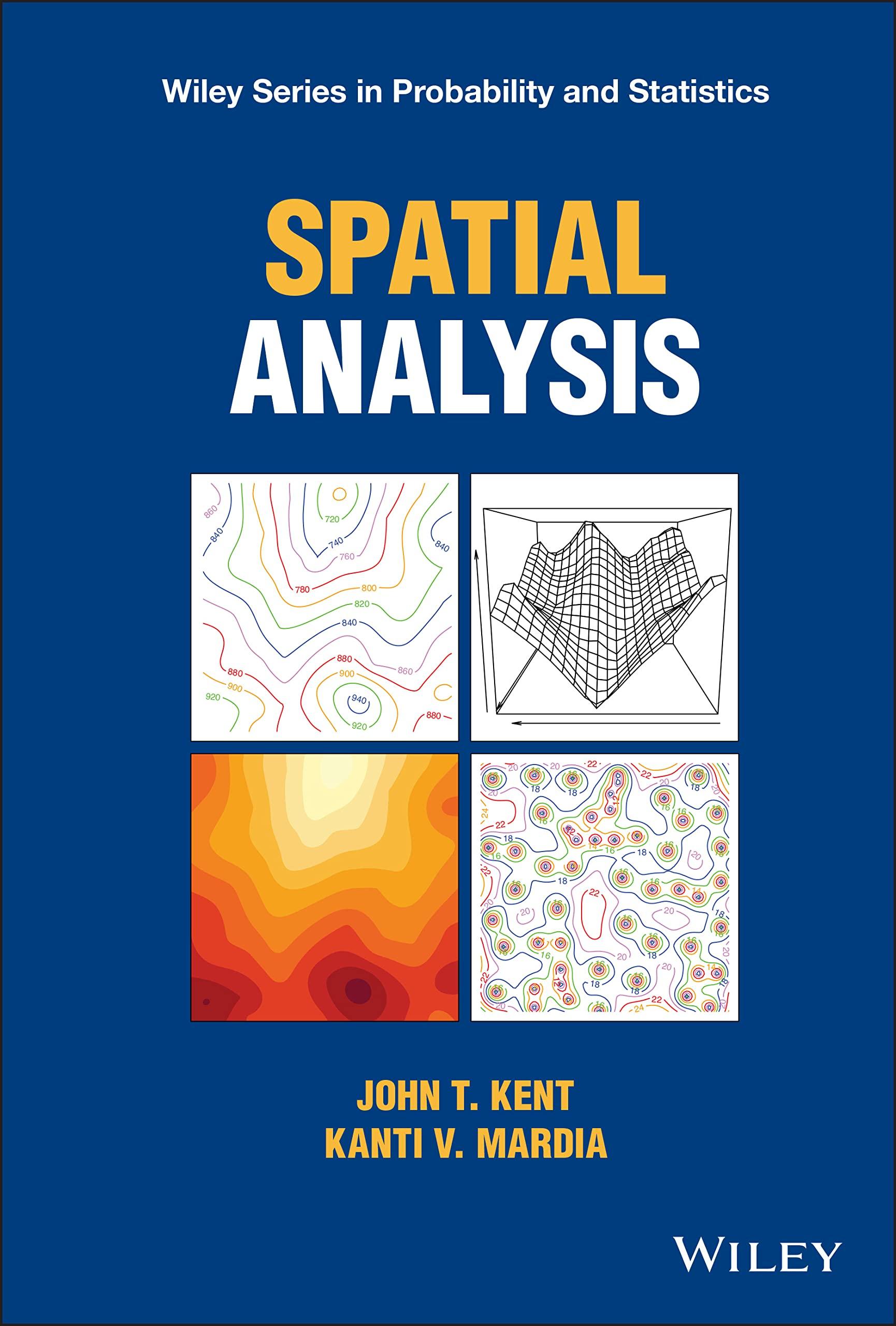8.6 Consider a tensor product covariance model for a zero-mean bivariate stationary spatial process on 1 where
Question:
8.6 Consider a tensor product covariance model for a zero-mean bivariate stationary spatial process on ℝ1 where cov(Xu(t), X????(t + h)) = cu???? exp(−0.5|h|), u, ???? = 1, 2, h ∈ ℝ1
, and C =
[
1 b b 1
]
, b = 0.7.
Suppose the following observations are available, x1(0), x1(1), x2(0), and that we wish to predict the value of x2(1). Show that the joint covariance function of X1(0), X1(1), X2(0), X2(1) is
Σ =
⎡
⎢
⎢
⎢
⎢
⎣
1 a b ab a 1 ab b b ab 1 a ab b a 1
⎤
⎥
⎥
⎥
⎥
⎦
, a = e−0.5, b = 0.7.
Show that the predictor of x2(1) using just the value x2(0) from the x2-process is given by x̂2(1) = ax2(0) with prediction variance 1 − a2 = 0.632.
Show that the predictor of x2(1) using x2(0) together with the values x1(0), x1(1) from the x1-process is given by x̂2(1)=−0.425x1(0) + 0.700x1(1) +
0.607x2(0) with prediction variance 0.322. That is, the prediction variance drops by nearly half by including the x1-data in the prediction process.
Step by Step Answer:







